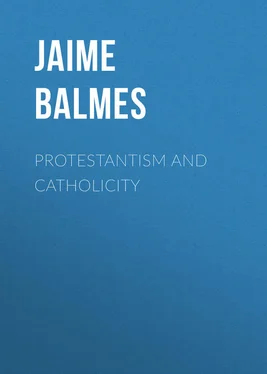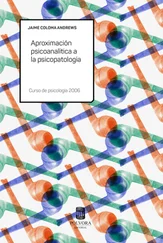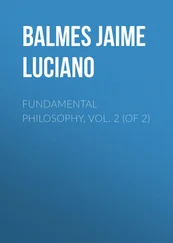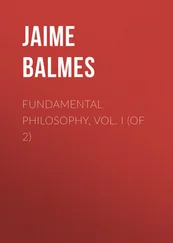Jaime Balmes - Protestantism and Catholicity
Здесь есть возможность читать онлайн «Jaime Balmes - Protestantism and Catholicity» — ознакомительный отрывок электронной книги совершенно бесплатно, а после прочтения отрывка купить полную версию. В некоторых случаях можно слушать аудио, скачать через торрент в формате fb2 и присутствует краткое содержание. Жанр: foreign_antique, foreign_prose, на английском языке. Описание произведения, (предисловие) а так же отзывы посетителей доступны на портале библиотеки ЛибКат.
- Название:Protestantism and Catholicity
- Автор:
- Жанр:
- Год:неизвестен
- ISBN:нет данных
- Рейтинг книги:3 / 5. Голосов: 1
-
Избранное:Добавить в избранное
- Отзывы:
-
Ваша оценка:
- 60
- 1
- 2
- 3
- 4
- 5
Protestantism and Catholicity: краткое содержание, описание и аннотация
Предлагаем к чтению аннотацию, описание, краткое содержание или предисловие (зависит от того, что написал сам автор книги «Protestantism and Catholicity»). Если вы не нашли необходимую информацию о книге — напишите в комментариях, мы постараемся отыскать её.
Protestantism and Catholicity — читать онлайн ознакомительный отрывок
Ниже представлен текст книги, разбитый по страницам. Система сохранения места последней прочитанной страницы, позволяет с удобством читать онлайн бесплатно книгу «Protestantism and Catholicity», без необходимости каждый раз заново искать на чём Вы остановились. Поставьте закладку, и сможете в любой момент перейти на страницу, на которой закончили чтение.
Интервал:
Закладка:
After these reflections, to which I especially call the attention of all thinking men, I will point out a thing which has, perhaps, not yet been remarked; it is, that Christianity has eminently contributed to create that individual sphere in which man, without breaking the ties which connect him with society, is free to develop all his peculiar faculties. From the mouth of an Apostle went forth that generous expression which strictly limits political power: "We ought to obey God rather than man." (Acts v. 29.) "Obedire oportet Deo magis quam hominibus." The Apostle thereby proclaims that the individual should cease to acknowledge power, when power exacts from him what he believes to be contrary to his conscience. It was among Christians that this great example was witnessed for the first time; individuals of all countries, of all ages, of both sexes, of all conditions, braving the anger of authority, and all the fury of popular passions, rather than pronounce a single word contrary to the principles which they professed in the sanctuary of conscience; and this, not with arms in their hands, in the midst of popular commotions, where their impetuous passions are excited, which communicate to the mind temporary energy, but in the solitude and obscurity of dungeons, amid the fearful calmness of the tribunals, that is, in that situation where man, alone and isolated, cannot show force and dignity without revealing the elevation of his ideas, the nobleness of his feelings, the unalterable firmness of his conscience, and the greatness of his soul. Christianity engraved this truth deeply on the heart of man, that individuals have duties to perform, even when the whole world is aroused against them; that they have an immense destiny to fulfil, and that it is entirely their own affair, the responsibility of which rests upon their own free will. This important truth, unceasingly inculcated by Christianity at all times, to both sexes, to all conditions, must have powerfully contributed to excite in man an active and ardent feeling of personality. This feeling, with all its sublimity, combining with the other inspirations of Christianity, all full of dignity and grandeur, has raised the human mind from the dust, where ignorance and rude superstitions, and systems of violence, which oppressed it on all sides, had placed and retained it. How strange and surprising to the ears of Pagans must have been those energetic words of Justin, which nevertheless expressed the disposition of mind of the majority of the faithful, when, in his Apology, addressed to Antoninus Pius, he said, "As we have not placed our hopes on present things, we contemn those who kill us, death being, moreover, a thing which cannot be avoided."
This full and entire self-consciousness, this heroic contempt of death, this calm spirit of a man who, supported by the testimony of intimate feeling, sets at defiance all the powers of earth, must have tended the more to enlarge the mind, as they did not emanate from that cold stoical impassibility, the constant effort of which was to struggle against the nature of things without any solid motive. The Christian feeling had its origin in a sublime freedom from all that is earthly, in a profound conviction of the holiness of duty, and in that undeniable maxim, that man, in spite of all the obstacles which the world places in his way, should walk with a firm step towards the destiny which is marked out for him by his Creator. These ideas and feelings together communicated to the soul a strong and vigorous temper, which, without reaching in any thing the savage harshness of the ancients, raised man to all his dignity, nobleness, and grandeur. It must be observed that these precious effects were not confined to a small number of privileged individuals, but that, in conformity with the genius of the Christian religion, they extended to all classes; for one of the noblest characters of that divine religion is the unlimited expansion which it gives to all that is good; it knows no distinction of persons, and makes its voice penetrate the obscurest places of society. It was not only to the elevated classes and philosophers, but to the generality of the faithful, that St. Cyprian, the light of Africa, addressed himself, when, summing up in a few words all the grandeur of man, he marked with a bold hand the sublime position where our soul ought to maintain itself with constancy. "Never," he says, "never will he who feels himself to be the child of God admire the words of man. He falls from his noblest state who can admire any thing but God. " ( De Spectaculis. ) Sublime words, which make us boldly raise our heads, and fill our hearts with noble feelings; words which, diffusing themselves over all classes, like a fertilizing warmth, were capable of inspiring the humblest of men with what previously seemed exclusively reserved for the transports of the poet:
Os homini sublime dedit, cœlumque tueri
Jussit, et erectos ad sidera tollere cultus.
The development of the moral life, the interior life, that life in which man, reflecting on himself, is accustomed to render a circumstantial account of all his actions, of the motives which actuate him, of the goodness or the wickedness of those motives, and the object to which they tend, is principally due to Christianity, to its unceasing influence on man in all his conditions, in all situations, in all moments of his life. Such a progress of the individual life in all that it has most intimate, most active, and most interesting for the heart of man, was incompatible with that absorption of the individual by society, with that blind self-denial, in which man forgot himself, to think only of the association of which he formed a part. This moral and interior life was unknown to the ancients, because they wanted principles for supporting, rules for guiding, and inspirations for exciting and nourishing it. Thus at Rome, where the political element tries its ascendency over minds, when enthusiasm becomes extinguished by the effect of intestine dissensions, when every generous feeling becomes stifled by the insupportable despotism which succeeds to the last agitations of the republic, we see baseness and corruption develop themselves with fearful rapidity. The activity of mind which before occupied itself in debates of the Forum and the glorious exploits of war, no longer finding food, gave itself up to sensual pleasures with an abandonment which we can hardly imagine now-a-days, in spite of the looseness of morals which we so justly deplore. Thus we see among the ancients only these two extremes, either the most exalted patriotism, or the complete prostration of the faculties of the soul, which abandons itself without reserve to the dictates of its irregular passions; there man was the slave either of his own passions, of another man, or of society.
Since the moral tie which united men to Catholic society has been broken, since religious belief has been weakened, in consequence of the individual independence which Protestantism has proclaimed in religious matters, it has unhappily become possible for us to conceive, by means of examples found in European civilization, what man still deprived of real knowledge of himself, his origin and destiny, must have been. We will indicate in another place the points of resemblance which are found between ancient and modern society in the countries where the influence of religious ideas is enfeebled. It is enough now to remark, that if Europe had completely lost Christianity, according to the insane desires of some men, a generation would not have passed away without there being revived among us the individual and society such as they were among the ancients, except the modifications which the difference of the material state of the two civilizations would necessarily produce.
The doctrine of free will, so loudly proclaimed by Catholicity, and sustained by her with such vigour, not only against the old Pagan teaching, but particularly against sectarians at all times, and especially against the founders of the pretended Reformation, has also contributed more than is imagined to develop and perfect the individual, to raise his ideas of independence, nobleness, and dignity. When man comes to consider himself as constrained by the irresistible force of destiny, and attached to a chain of events over which he has no control – when he comes to suppose that the operations of his mind, those active proofs of his freedom, are but vain illusions – he soon annihilates himself; he feels himself assimilated to the brute; he ceases to be the prince of living beings, the ruler of the earth; he is nothing more than a machine fixed in its place, which is compelled to perform its part in the great system of the universe. The social order ceases to exist; merit and demerit, praise and blame, reward and punishment, are only unmeaning words. If man enjoys or suffers, it is only in the same way as a shrub, which is sometimes breathed upon softly by the zephyrs, and sometimes blasted by the north wind. How different it is when man is conscious of his liberty! Then he is master of his destiny; good and evil, life and death, are before his eyes; he can choose, and nothing can violate the sanctuary of his conscience. There the soul is enthroned, there she is seated, full of dignity, and the whole world raging against her, the universe falling upon her fragile body, cannot force her will. The moral order is displayed before us in all its grandeur; we see good in all its beauty, and evil in all its deformity; the desire of doing well stimulates, and the fear of doing ill restrains us; the sight of the recompense which can be obtained by an effort of free will, and which appears at the end of the path of virtue, renders that path more sweet and peaceful, and communicates activity and energy to the soul. If man is free, there remains something great and terrible, even in his crime, in his punishment, and even in the despair of hell. What is man deprived of liberty and yet punished? What is the meaning of this absurd proposition, a chief dogma of the founders of Protestantism? This man is a weak and miserable victim, in whose torture a cruel omnipotence delights; a God who has created him in order to see him suffer; a tyrant with infinite power, that is, the most dreadful of monsters. But if man is free, when he suffers, he suffers because he has deserved it; and if we contemplate him in the midst of despair, plunged into an ocean of horrors, his brow furrowed by the just lightnings of the Eternal, we seem to hear him still pronounce those terrible words with a haughty bearing and proud look, non serviam, I will not obey .
Читать дальшеИнтервал:
Закладка:
Похожие книги на «Protestantism and Catholicity»
Представляем Вашему вниманию похожие книги на «Protestantism and Catholicity» списком для выбора. Мы отобрали схожую по названию и смыслу литературу в надежде предоставить читателям больше вариантов отыскать новые, интересные, ещё непрочитанные произведения.
Обсуждение, отзывы о книге «Protestantism and Catholicity» и просто собственные мнения читателей. Оставьте ваши комментарии, напишите, что Вы думаете о произведении, его смысле или главных героях. Укажите что конкретно понравилось, а что нет, и почему Вы так считаете.












